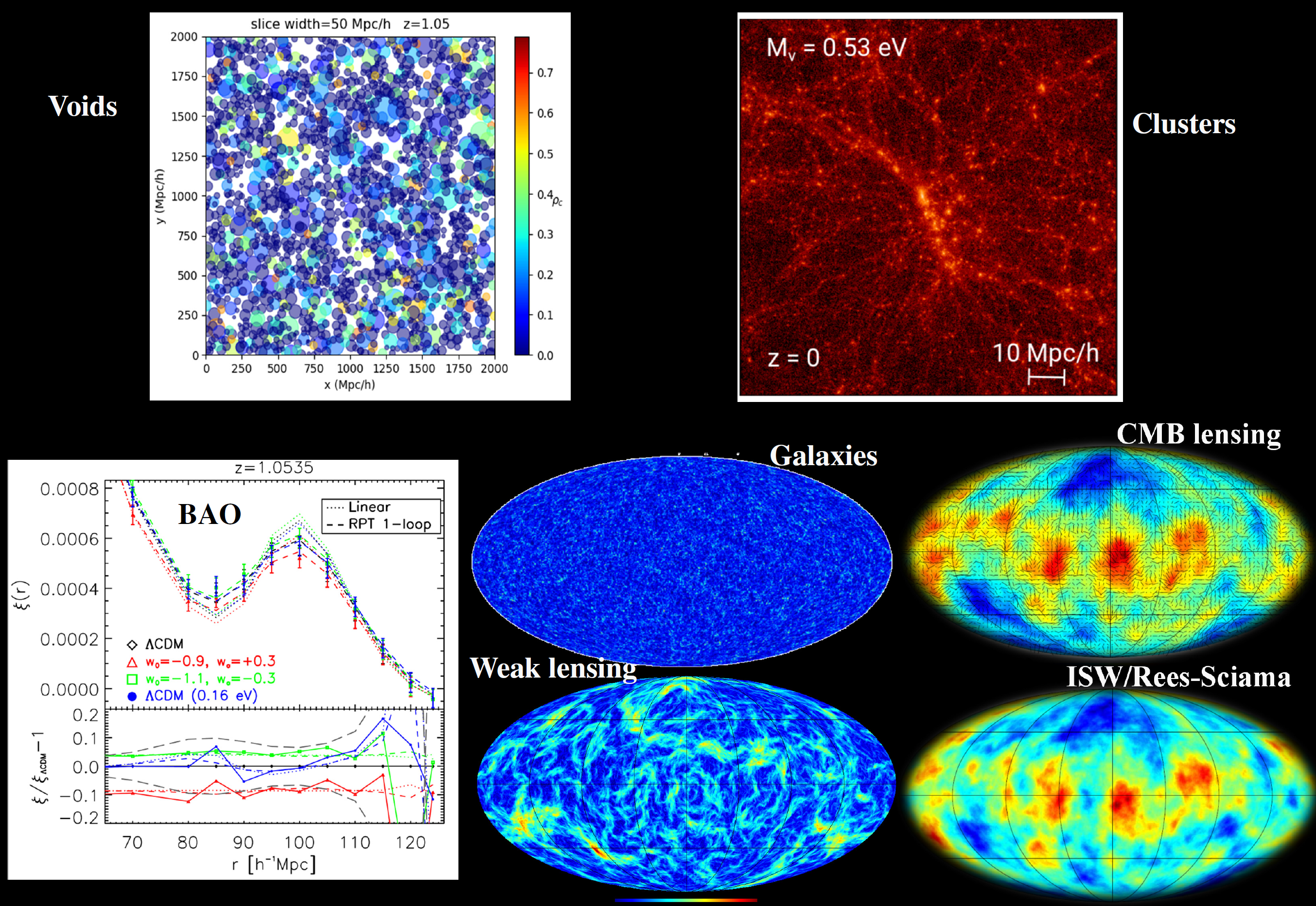Reaserch team members: Melita Carbone (CV), Bianca De Caro, Piero Trevisan, Eleonora Villa
The discovery of the recent accelerated expansion of the Universe has
motivated the planning of new large galaxy surveys and CMB probes,
aiming at understanding the nature of the so-called dark energy. On the
other hand, the recent discovery of neutrino flavour oscillations has
stimulated a new area of research, devoted to measurements of the
neutrino mass. In this new exciting context, future cosmological
experiments may be the first capable of measuring both the neutrino mass
and the parameters of dynamical dark energy.
However, these effects
are largely degenerate and, as the precision of the new experiments
reaches percent accuracies, the accuracy of theoretical predictions,
particularly in the non-linear regime of structure evolution, must
correspondingly improve. It is on such small scales that gravitational
and neutrino free streaming effects can be disentangled by clever
combinations of different probes (as galaxy clustering, gravitational
lensing, and CMB secondary anisotropies). This can only be achieved
through numerical gravitational simulations of the universe that include
both neutrinos and dynamical dark energy.

We have recently produced a large set of cosmological simulations that represent the state of the art in this respect, the so-called “Dark Energy and Massive Neutrino UniVerse” (DEMNUni) simulations. A complementary expertise is needed to develop and test measurements and combinations of classical and new observables of large-scale structure in this combined framework. New tools and models need to be tested on a fully self-consistent scenario, applied to available data and delivered to the scientific community, to produce unbiased, definitive measurements of the neutrino and dark energy properties. These goals naturally match with the breadth of experience in complementary areas of cosmology that we have accumulated working since many years in different branches of cosmology and, in particular, in the preparation of Euclid, the medium-class ESA mission, launched on 1st July 2023, which will be combined with radio-surveys sauch as SKA, gravitational waves interferometers such as ET and LISA.
